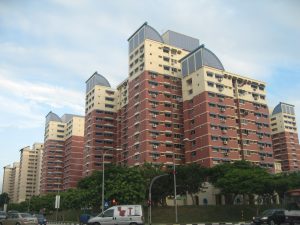Singapore’s millennials are amongst some of the gloomiest millennials in the world and for them first home purchase may be both confusing and daunting
The 2019 Deloitte Millennial Survey has found that Singapore’s millennials are amongst some of the gloomiest millennials in the world and are pessimistic about the economy in the next one year. Furthermore, CNBC has reported that Singapore is second on the list of most expensive housing markets in the world.
Put together both of the aforementioned and it will not come as a surprise that the first home purchase for millennials may be rather confusing and daunting.
Table of Contents
However, be assured that first home purchase is extremely doable. This article seeks to provide you with the confidence moving forward, with some tips on what to look out for whilst holding on to such a huge responsibility in the future. Read on to know more about affording a HDB flat or executive condominium, both which millennials are more likely to purchase for their first homes.

HDB Flat
HDBs are basically the cheapest option of housing in Singapore, and is also known as public housing. In order to be eligible for a HDB FLAT, you actually do have a few boxes to check off before you are deemed entitled to purchase a flat.
Often, the eligibility schemes are very stringent and there is a low income ceiling to ensure that the flats are available to those who are unable to purchase more expensive housing in Singapore. As at 11 September 2019, this income ceiling has been raised from $12,000 to $14,000 for families, and $6,000 to $7,000 for singles.
If a HDB flat is your first home purchase, you are able to decide between taking a loan with HDB or with the bank; the difference is the Loan to Value limit, whereby you only need to pay 10% of the down-payment if you take a loan with the former, as compared to 25% if you take a bank loan.
There are many types of grants which you may be eligible for when applying for a HDB. By default, those who have been cleared for a HDB flat will qualify for the CPF housing grants. Thereafter, based on your circumstances, you may or may not receive other types on grants. It is important to do your research first in order to fully maximise the number of grants you can receive。
Executive Condominium
Executive condominiums can be first home purchase only for those who have a minimum income of $16,000. They are rather special, as they go from public housing to private housing after 10 years. This means that their value goes up substantially and are generally seen as a better investment as compared to HDB flats.
Executive condominiums are generally more expensive, also because you are only able to take 75% of the loans from banks as opposed to the 90% for HDB loans. However, it is also quite similar to the HDB as there is a minimum occupancy period of 5 years before you are able to sell it.
Whilst there are other types of housing in Singapore that are private, majority of the millennials will turn to public housing as a first step into the housing industry as it is much more affordable, and loans will be easier to repay as compared to private housing.
Unlike all other loans, housing loans probably take up the bulk of your debt, hence it is highly advised to do extensive research and find out what grants you are eligible for before making that first home purchase.
First time homebuyers should be aware that the buying process is lengthy one involving several parties.
Different properties have different timelines between when you decide on a house to when you complete the purchase. For example, if the property is still under construction, you will be looking at a progressive payment program. Completed properties typically take 12 weeks before the house is yours, from the point you exercise the purchase agreement.
This type of timeline typically requires the buyer to give 1 per cent option amount in cash on day 1. The buyer then has until day 14 to pay the remaining 4 per cent in cash – this will launch the completion period spanning 10 to 12 weeks. Within two weeks of day 14, buyers will need to pay stamp duties. Finally, two weeks before completion, the buyer would need to make payment for the balance 15 per cent from savings in their Central Provident Fund or cash downpayment.
It is important for home buyers to set a realistic timeline, be aware of payment milestones and ensure they have enough at each due date to make payment, to avoid unnecessary delays or disappointment.
Lastly, first time homebuyers should allocate enough time (minimum 30 minutes) to thoroughly inspect the house and avoid glossing over the inspection process. When the house is carefully and properly inspected, home buyers can potentially save money in the long run since they are better appraised of what they are committing to.
Home buyers should inspect each room and space within the home and keep an eye out for spaces that could be unsafe or harbour costly pest infestations. Buyers should further check if the house gets adequate sunlight and determine whether the home gets too hot during the day – this might possibly cause higher electricity bills required to cool the home.
In addition to this, it will be sensible to explore the neighbourhood surrounding the home to discover what amenities are available in the community, and whether the location is accessible and suits you and your family.
Follow these tips and prepare to buy a new home properly to make the home-buying process a smooth sailing one.






